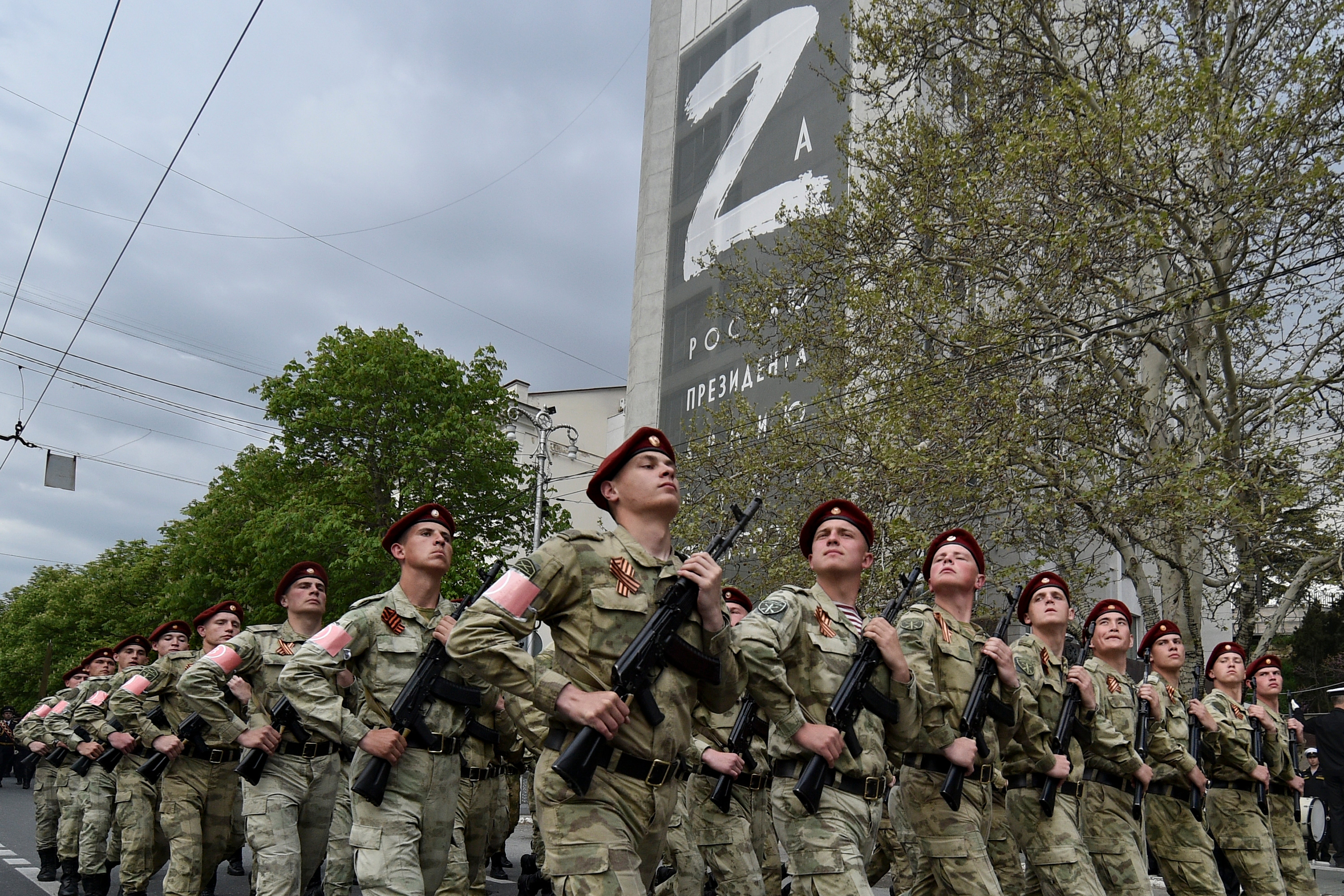Russia marks WWII victory shadowed by Ukraine
Impeccably straight columns of soldiers will march through Red Square on Monday as they do every year on Victory Day

Your support helps us to tell the story
From reproductive rights to climate change to Big Tech, The Independent is on the ground when the story is developing. Whether it's investigating the financials of Elon Musk's pro-Trump PAC or producing our latest documentary, 'The A Word', which shines a light on the American women fighting for reproductive rights, we know how important it is to parse out the facts from the messaging.
At such a critical moment in US history, we need reporters on the ground. Your donation allows us to keep sending journalists to speak to both sides of the story.
The Independent is trusted by Americans across the entire political spectrum. And unlike many other quality news outlets, we choose not to lock Americans out of our reporting and analysis with paywalls. We believe quality journalism should be available to everyone, paid for by those who can afford it.
Your support makes all the difference.Impeccably straight columns of soldiers will march through Red Square on Monday as they do every year on Victory Day. Tanks, armored personnel carriers and transports carrying huge intercontinental ballistic missiles will rattle across the paving stones. But this year’s observance of Russia’s most important patriotic holiday carries exceptional weight.
The annual show in Red Square commemorating the defeat of Nazi Germany has become so ritualized that one year’s parade is barely distinguishable from others. A previously unseen piece of equipment might appear; the medal-festooned World War II veterans in the viewing stands become frailer and fewer in number each year. Its predictability can dilute its emotional power.
This year, as Russian troops fight gruelling battles in Ukraine and unleash torrents of missiles and bombs, few Russians are likely to be dulled by the parade’s rituals. Instead, they will watch it for signs of what could come next in the conflict.
Some Russians fear President Vladimir Putin will use his speech at the parade to declare the “special military operation” in Ukraine — as the Kremlin insists it be called — as a full-fledged war.
That declaration would precede a broad mobilization of troops to bolster Russia’s forces.
Asked by The Associated Press whether mobilization rumors could dampen the Victory Day mood, Putin spokesman Dmitry Peskov said “nothing will cast a shadow” over “the sacred day, the most important day” for Russians.
Human rights groups report a spike in calls from people asking about laws concerning mobilization and their rights in case of being ordered to join the military.
Russian state TV has ramped up the patriotic rhetoric. In announcing the Feb. 24 military operation, Putin declared it was aimed at the “demilitarization” of Ukraine to remove a perceived military threat to Russia by “neo-Nazis.”
A recent TV commentary said Putin’s words were “not an abstract thing and not a slogan” and praised Russia’s success in Ukraine, even though Moscow’s troops have gotten bogged down, making only minor gains in recent weeks.
One official has suggested that Victory Day marchers display photos of soldiers now fighting in Ukraine. Normally on the holiday, Russians carry portraits of their relatives who took part in World War II to honor those in the so-called “Immortal Regiment” from a conflict in which the Soviet Union lost a staggering 27 million people.